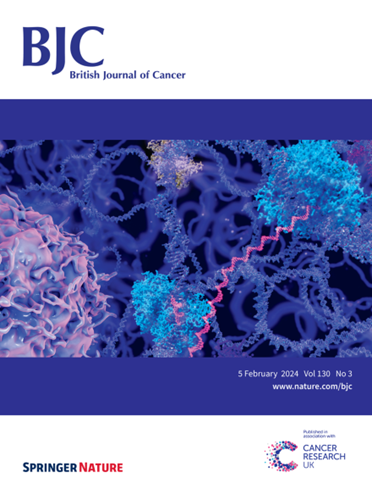Prompt initiation of durvalumab and tremelimumab for unresectable hepatocellular carcinoma in patients with chronic active hepatitis B: a phase 2 clinical trial
IF 6.4
1区 医学
Q1 ONCOLOGY
引用次数: 0
Abstract
Chronic hepatitis B virus (HBV) infection is an etiology of HCC, but clinical trials using immune checkpoint inhibitors (ICIs) usually exclude patients with chronic active hepatitis B (serum HBV viral load > 2000 IU/mL). This study examined the safety and efficacy of concurrently administering the ICI and anti-HBV medications in this patient population. In this single-arm phase 2 clinical trial, we enrolled patients with advanced HCC and untreated chronic active hepatitis B. Patients received 1500 mg of durvalumab every 4 weeks alone or in combination with 300 mg of tremelimumab on day 1 (the STRIDE regimen). Anti-HBV treatment with entecavir was simultaneously initiated. The primary endpoint was the rate of HBV reactivation. We enrolled 30 patients, whose mean baseline HBV viral load was 770,986 IU/mL. No patients experienced HBV reactivation or HBV-associated hepatitis. Hepatitis flare was noted in 8 (26.7%) patients, but none of them were associated with HBV reactivation. The objective tumor response rate was 10% and 25% for the durvalumab treatment alone and the STRIDE regimen, respectively. For patients with chronic active hepatitis B, ICI therapy could be promptly initiated as long as anti-HBV medications were administered simultaneously. NCT04294498

迅速启动durvalumab和tremelimumab治疗慢性活动性乙型肝炎患者不可切除的肝细胞癌:一项2期临床试验
背景:慢性乙型肝炎病毒(HBV)感染是HCC的一个病因,但使用免疫检查点抑制剂(ICIs)的临床试验通常排除慢性活动性乙型肝炎患者(血清HBV病毒载量> 2000 IU/mL)。本研究考察了在该患者群体中同时使用ICI和抗hbv药物的安全性和有效性。方法:在这项单组2期临床试验中,我们招募了晚期HCC和未经治疗的慢性活动性乙型肝炎患者。患者每4周接受1500 mg durvalumab单独治疗,或在第1天联合300 mg tremelimumab (STRIDE方案)。同时开始恩替卡韦抗hbv治疗。主要终点是HBV再激活率。结果:我们纳入了30例患者,其平均基线HBV病毒载量为770,986 IU/mL。没有患者出现HBV再激活或HBV相关肝炎。8例(26.7%)患者出现肝炎爆发,但均与HBV再激活无关。杜伐单抗单独治疗和STRIDE方案的客观肿瘤缓解率分别为10%和25%。结论:对于慢性活动性乙型肝炎患者,只要同时给予抗hbv药物治疗,即可及时开始ICI治疗。临床试验注册:NCT04294498。
本文章由计算机程序翻译,如有差异,请以英文原文为准。
求助全文
约1分钟内获得全文
求助全文
来源期刊

British Journal of Cancer
医学-肿瘤学
CiteScore
15.10
自引率
1.10%
发文量
383
审稿时长
6 months
期刊介绍:
The British Journal of Cancer is one of the most-cited general cancer journals, publishing significant advances in translational and clinical cancer research.It also publishes high-quality reviews and thought-provoking comment on all aspects of cancer prevention,diagnosis and treatment.
 求助内容:
求助内容: 应助结果提醒方式:
应助结果提醒方式:


